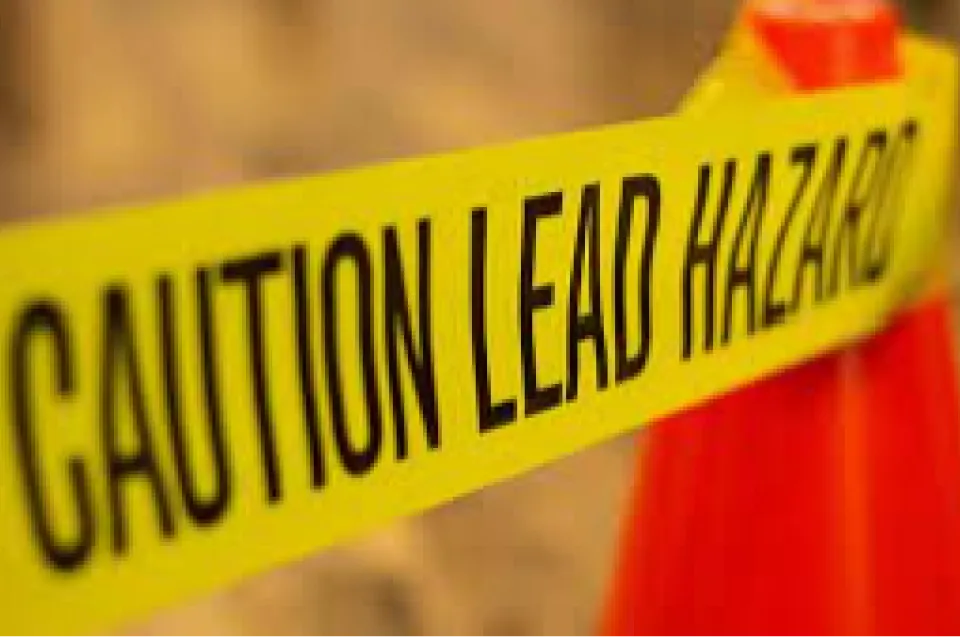UNITED CONTRACTORS REGULATORY ALERT:
REVISED LEAD REGULATION APPROVED BY CAL/OSHA STANDARDS BOARD DESPITE STRONG INDUSTRY OPPOSITION

On February 15, Cal/OSHA voted 5-2 to approve significant revisions to lead regulations. These changes, slated to take effect from January 2025, have far-reaching implications for our industry. While we firmly oppose these modifications, it is essential to understand their potential impact on your business and our industry. We encourage you to review the following updates carefully. United Contractors and our industry coalition are exploring all legal and administrative options. We will continue to keep you up to date.
Background
On Thursday, February 15, 2024, the Cal/OSHA Standards Board voted to adopt controversial changes to Title 8, Construction Safety Orders, Section 1532.1, and General Industry Safety Orders, Sections 5155 and 5198.
Effective Dates
The the revisions for the construction and general industries will become effective January 1, 2025.
Major Changes to the Lead Regulation in Construction
Lowers the Permissible Exposure Limit (PEL) from 50 micrograms per cubic meter (µg/m³) of air to 10 micrograms
Lowers the Action Level (AL) from 30 micrograms per cubic meter of air to 2 micrograms
Medical Removal – lowers the threshold – currently one blood test ≥ 50 micrograms per deciliter (µg/dl) of blood to any of the following:
One blood test at or above 30µg/dl;
Two consecutive blood level lead tests >20 µg/dl; or
The average of blood tests in a six-month period ≥20 µg/dl
Employers must implement a written blood lead level response plan to reduce and maintain Blood Lead Levels (BLL)s below 10 µg/dl
Construction employers have three levels of “trigger tasks” when lead is present, which until an exposure assessment is completed, are presumed to be above the PEL and require interim protections
Medical surveillance required for employees performing trigger tasks and for confirmed lead-exposed employees
Shower facilities are required when employees are performing Level 3 trigger tasks, such as using lead-containing mortar, coatings or paint, abrasive blasting, welding or torching. Separate eating facilities and regulated areas also are required
Updates requirements for hygiene facilities and hygiene practices to reduce lead ingestion and cross-contamination
Employers must provide appropriate protective clothing at no cost to the employee, including head coverings, shoes and disposable shoe covers, and where needed, gloves, face shields and vented goggles
A housekeeping program that will prohibit sweeping or shoveling, in favor of vacuuming or other methods to minimize airborne lead.
Compliance Resources
Many stakeholders have stated that Cal/OSHA must undertake an early and widespread education and outreach program to assist employers understand their responsibilities. These might include:
Development of a model program or program template
Draft Frequently Asked Questions
Develop eTools
Webinars
Partnering with the three OSHA-approved Education Centers to provide training either remotely or in-person (the three Centers are 1) Chabot-Las Positas Community College District, 2) California State University Dominguez Hills, and 3) UC San Diego).
Coalition to Undertake Actions to Amend, or Delay Implementation
At the beginning of 2023, UCON and thirty (30) other construction organizations formed a Coalition to present a unified front in presenting our opposition to the proposed revisions, and outlining our serious concerns.
The Coalition is considering action in the following areas:
Administrative Options:
File a formal Petition with Dave Thomas, Chair of the Cal/OSHA Standards Board seeking changes as articulated in our Coalition letter
File a Complaint About State Program Administration (CASPA) with the federal OSHA Regional Administrator in San Francisco. Such a complaint can be filed by any person in a state program state which would articulate the various concerns about process, timeliness and stakeholder engagement during the lead regulation promulgation process.
Legal Option
The Coalition will participate in a zoom call March 7, 2024, with an attorney affiliated with a national law firm specializing in OSHA matters to discuss the possibility of filing an injunction against Cal/OSHA.